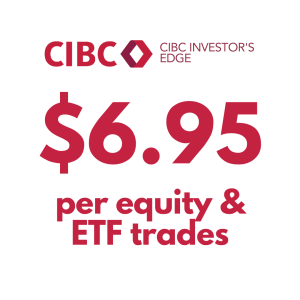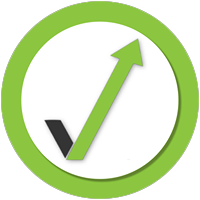
In today’s diverse economic climate, there are a ton of investment options for interested individuals to choose from. Bonds are one of the options available to Canadians. Investing in bonds is still popular in Canada, especially since they are great vehicles to generate income while preserving capital. Buying bonds may seem the same as buying stocks but there are a few notable differences in how they function and are valuated. In Canada, you can buy bonds from the issuing party or through your brokerage account. Let’s look into how to buy bonds in Canada and the different types of bonds you can choose from for a successful investment below.

Table of contents
Does Canada still sell bonds?
Yes. Canadian residents can still invest in bonds and other similar investment vehicles. All levels of government, such as federal, municipal, and provincial, supply government bonds. You can also purchase corporate bonds. The federal government also supplies Treasury Bills, better known as T-Bills.
On the other hand, Canada Savings Bonds are no longer available for purchase. The federal government discontinued the sale of Canada Savings Bonds and Canada Premium Bonds in 2017. If you already own a Canada Savings Bond, you can still cash them through the following ways:
- Payroll Savings Plans Owners: Once a bond reaches maturity, it will require an automatic payout. This does not exclude Canada Savings Bonds.
- Certified Bond Owners: You can redeem your bond when you provide your financial institution with bond certificates.
- Canada RSP and Canada RIF Holders: With a registered savings plan, you can visit the bank to withdraw or transfer the funds.
If you are unsure of the security of bonds, a Guaranteed Investment Certificate can offer a similar level of stability and rate of return. However, we recommend you speak to a professional financial advisor about the best ways to invest for you and your goals.
CIBC Investor’s Line Offer
Up to $6.95 per online stock or ETF trade. Plus, there’s no minimum account balance.
What kind of bonds can I buy in Canada?
Before finding out how to buy bonds in Canada, it’s good to know what kind of bonds can you buy first. Bonds that you can buy with relative ease and low transaction costs in Canada include:
1. Government Bonds
Also known as Treasuries or T-Bills, these bonds are known as one of the safest types of investments. Although, the return reflects the level of risk as it can be lower compared to other investment vehicles. In Canada, all levels of government can issue government bonds.
Based on the bond’s maturity time frame, government bonds also have the following names:
- Provincial Bonds: The provincial authority backs this kind of bond to levy and collect taxes. Interest is usually paid more than twice a year and, upon maturity, they are sold at the current market value.
- Municipal Bonds: Cities, school districts, and counties can authorize these bonds to fund local projects like schools, sewers, and highways.
- Government of Canada Real Returns Bonds: The Canadian federal government backs this bond for inflation adjustment.
2. Corporate Bonds
A corporate bond is like a loan or negotiable security issued by a company and sold to investors. The company makes interest payments until a certain date is fixed for the repayment of the initial loan amount.
Companies may need to sell bonds to investors for a couple of reasons, including:
- Funding research and development
- Financing mergers and acquisitions
- Refinancing debt
- Buying properties
- Buying back issued shares from shareholders
- Avoiding equity financing to maintain control of the company
Corporate bonds usually pay a higher interest rate compared to government bonds. Debentures may be compared to corporate bonds, but the loan is not secured against the company assets as collateral for the loan. There are two types of corporate bonds and they include investment-grade and speculative-grade corporate bonds. Below are additional details:
- Investment-grade Corporate Bonds: This kind of corporate bond is issued by companies that have a higher credit rating. With a high rating, there is less chance of risk in your investment.
- Speculative-grade Corporate Bonds: The speculative-grade type is usually issued by new companies or those in a more competitive, volatile sector. It opens the investor to riskier investments. Due to the high chances of defaults, these bonds compensate for the risk by paying investors higher interest rates.
3. Strip Bonds
Strip bonds, another form of bond you can buy in Canada, are created from government and corporate bonds. It has its coupon payments and principal repayment divided into two parts that one can invest into individually. The principal part of the bond is known as the ‘strip,’ while the interest part of the bond is known as the ‘stripped coupon.’
Upon maturity, the investor that buys the strip receives the full face value (dollar value) of the bond. The investor that buys the stripped coupon receives the full value of the regular interest payments. Generally, strip bonds are another way for investors to invest in fixed-income securities while benefiting from diversification.
Note that the market where investors buy strip bonds from other investors is not as active as the market for other bonds. It will also require you to do more research because pricing is less transparent. With issues at hand, all buyers may pay the same price.
Related Reading: US Bond ETF in Canada
How to Buy Bonds in Canada
There are two major ways to buy bonds in Canada, which include direct purchases through a financial institution or your brokerage account. Let’s take a closer look below.
1. Buy Bonds Directly from a Financial Institution
Investors interested in how to buy bonds in Canada can visit their financial institution or a licensed financial advisor. The bank can provide a list of suitable bonds for you to choose from. Moreover, you can purchase these bonds in person, on the phone, or online.
A lot of bonds require a small fee or commission for you to complete the purchase. In some cases, your broker may also charge you a flat fee for a successful purchase. After the purchase, any interest payments will be deposited into the provided bank account of your choice.
Note that the provided account is the official account that will contain the money deposited until the bond’s maturity date. You may have to contact a certified broker to successfully sell your bond on time.
2. Buy Bonds as an ETF
Investors that own a brokerage account can invest in bonds by purchasing bond exchange-traded funds (ETFs). Similar to bond mutual funds, ETFs contain collections of bonds that follow a certain investment strategy. Bond ETFs are built for various reasons, which allows you to choose the type of ETF that best suits your investment needs. You may not own the bond directly, but you can own a portion of bonds held within an ETF.
A lot of brokers may charge a fee for buying and selling ETFs. You are likely to receive interest or dividend payments, which occur periodically and are directly paid into your brokerage account. Note that bond ETFs may also charge a small management expense ratio. Once the bonds mature, the ETF manager will buy new bonds to earn more income and continue a successful investment.
How to Buy Government Bonds in Canada
You should know that buying government bonds works a bit differently compared to buying corporate bonds. A lot of banks or brokers provide services that will help their clients to purchase government bonds. This can be done easily through regular investment accounts. In other words, you can buy government bonds through your bank or broker.
However, if this service is not available to you through your bank or brokerage, you may want to buy these bonds directly from the government. For example, one can buy Treasury Bills directly from the Bank of Canada.
Related Reading: Top 10 Mutual Fund Companies in Canada
How to Buy Corporate Bonds in Canada
You can buy corporate bonds in Canada on the primary market through a bank, brokerage firm, broker, or bond trader. However, each of these platforms takes a commission that will facilitate the purchase. Some corporate bonds are traded on a broker-dealer network as opposed to on a financial exchange. They offer you the ability to quickly and easily sell the bond for cash withdrawal. Investors may buy corporate bonds from this market or buy the initial nominal amount of the bond from the issuing company in the primary market. It all depends on the preferences of the investor.
Are Canadian bonds a good investment?
Whether Canadian bonds are a good investment or not depends on you and your goals. As an investor, you most likely will not encounter big risks when buying bonds because they’re low on the risk scale. However, there are certain factors you need to consider before deciding to invest in the most suitable bonds.
Historically, stocks and bonds have been a great combo in a traditional 60:40 portfolio. Stocks are typically higher risk than bonds. With this ratio, an investor can minimize the risk of stocks by offsetting with bond investments. Buying Canadian government bonds would be the best way to achieve successful drawdown protection.
If you need assistance at any point in your financial journey, a financial advisor can help. Fill out this quick questionnaire to be matched with one!
Read More: Building a Balanced Portfolio: Everything You Need to Know


